Africa
DRC: UN report highlights human rights violations linked to M23 group’s offensive
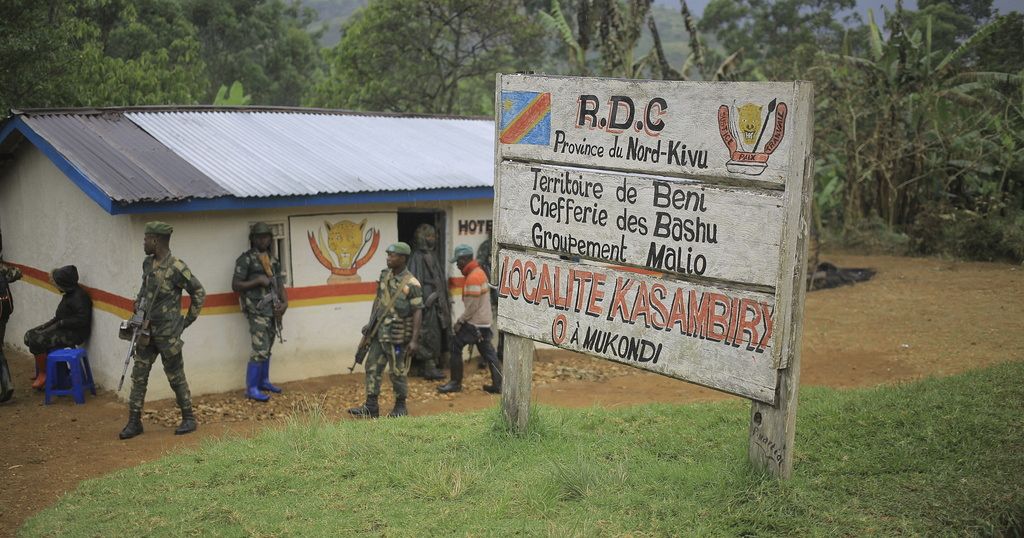
United Nations’ Deputy High Commissioner for Human Rights Nada Al-Nashif delivered a report concerning the human rights landscape in the Democratic Republic of Congo on Tuesday, highlighting ongoing violations linked to the offensive initiated by the Rwandan-supported M23 group in eastern DRC.
“This year’s offensive by the M23 armed group, backed by Rwanda, in the North and South Kivu provinces has intensified an already critical human rights and humanitarian crisis in Eastern DRC,” she stated.
Al-Nashif pointed out that since the last briefing to the Council in October, the UN Joint Human Rights Office has worked to provide technical assistance to local authorities aimed at reinforcing the rule of law, promoting transitional justice, and combating impunity, despite the recent surge in violence.
“The extent of violence and insecurity has hindered our Office’s ability to fully fulfill this mandate. Nonetheless, with our support, trials have taken place that led to the conviction of a warlord and former militia members for war crimes and crimes against humanity, including murder, torture, rape, and sexual slavery,” Al-Nashif remarked.
She emphasized with deep concern that since the start of the year, the UN has recorded 602 victims of extrajudicial and summary executions carried out by all factions involved in the conflict in the North and South Kivu provinces.
In the northeastern Ituri province, various groups continue to kill, injure, and abduct civilians.
Additionally, DRC forces and their allies have also targeted civilians.
Conflict-related sexual violence remains widespread, perpetrated by all sides, with reported cases increasing by over 270 percent from January to February, she noted.
Currently, nearly 26 million people—almost a quarter of the country’s population—are facing emergency and crisis levels of food insecurity.
Overall, around 7.8 million individuals are displaced within the DRC, including 3.8 million in the Kivu provinces alone.
Numerous schools have been shut down, destroyed, repurposed as emergency shelters, or taken over by armed factions, leaving over 1.6 million children in eastern DRC without access to education.
“Any strategy aimed at achieving lasting peace must address the fundamental causes of the conflict, particularly the unlawful exploitation of the nation’s natural resources. The DRC government must adopt a strong and unwavering approach against corruption, impunity, and hate speech, regardless of who is responsible,” she stated.
The Deputy High Commissioner emphasized the need to expedite transitional justice processes, including the completion of inclusive national consultations.
The national policy on transitional justice in the DRC, developed with assistance from the UN Human Rights Office, holds promise for significant future truth and reconciliation initiatives.
“As an Office, we will persist in supporting these efforts whenever possible. This includes providing forensic expertise, logistical and financial assistance, and support for victims and witnesses. We are also dedicated to aiding the reform of the Penal Code to incorporate provisions that classify hate speech as a serious offense,” Al-Nashif remarked.
“After nearly thirty years of conflict and more than six million fatalities, it should be clear that there is no military resolution to this crisis.”
She added that the people of the DRC require local, national, and regional leaders to prioritize dialogue over personal gain, greed, and violence.
The international community must also take decisive, tangible, and urgent steps to promote lasting peace in the DRC.
“States and private enterprises that benefit from natural resources extracted under perilous and illegal circumstances must cease to operate behind convoluted and opaque supply chains,” she asserted.
“Without decisive measures, the ongoing violence could potentially engulf the entire region, and the risks of such a disaster are escalating daily.”
Al-Nashif emphasized the need for accountability regarding the immense suffering experienced by civilians in the DRC.
She urged the international community to deliver a clear and powerful message to all involved parties, insisting that the violations and abuses—many of which could be classified as international crimes—must come to an end and be properly addressed.
Africa
Russia’s Lavrov accuses Ukraine of destabilising Sahel
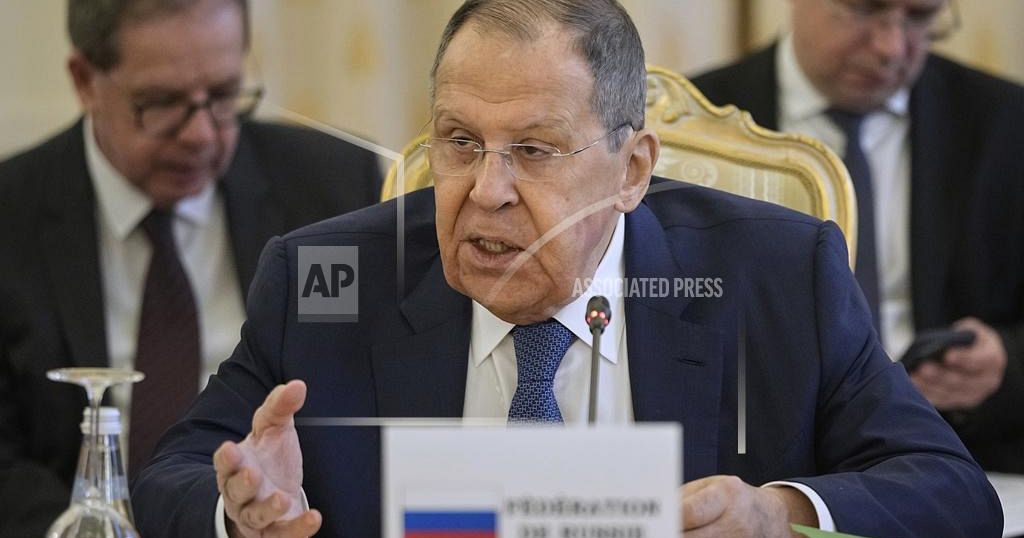
Russia’s Foreign Minister Sergey Lavrov has accused Ukraine of trying to “destabilize” the Sahel region on Thursday.
Lavrov made the comments at a news briefing in Moscow following talks with three of his counterparts from the Confederation of Sahel States.
“Some players outside the sahel continue attempts to destabilize the region. Besides former colonizers, this also includes the recently Kyiv regime, which openly supports terrorist groups in this part of Africa while its Western sponsors turn a blind eye to it.” Sergey Lavrov told reporters.
Malian Foreign Minister Abdoulaye Diop echoed his comments, saying his country considered Ukraine a “terrorist state”.
It comes after Mali’s government cut diplomatic ties with Ukraine last year over allegations that Kyiv aided an attack by armed groups in the West African country in which Malian soldiers and Russian mercenaries suffered heavy losses.
Africa
Trump imposes a hefty 50% reciprocal tariff on Lesotho
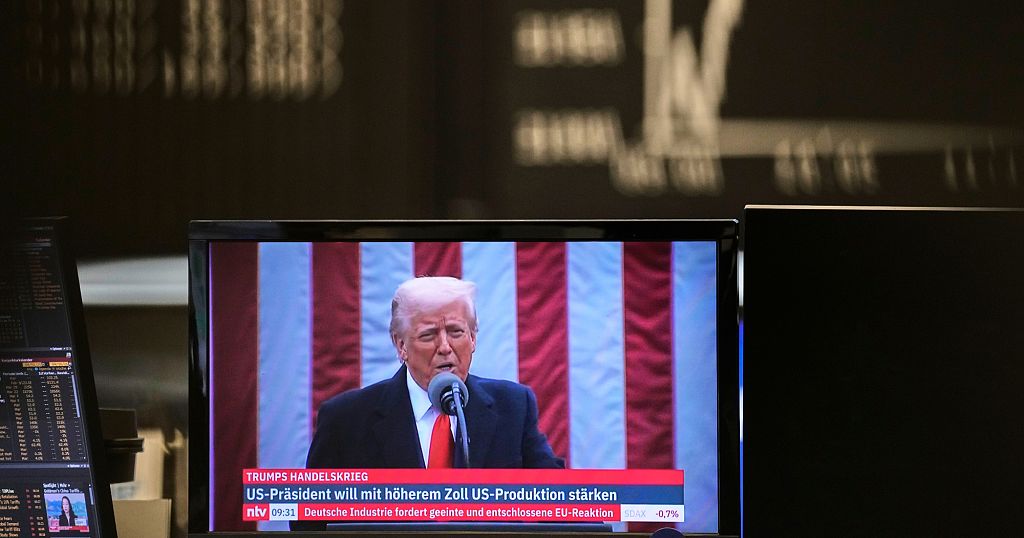
U.S. President Donald Trump has imposed a hefty 50% reciprocal tariff on Lesotho, a small, landlocked kingdom in southern Africa.
This makes Lesotho the country facing the highest tariff among all those on Trump’s long list of trade targets.
Despite being dismissed by Trump in March as a nation “nobody has ever heard of,” Lesotho, with a gross domestic product of just over $2 billion, has a significant trade relationship with the U.S.
The country has a trade surplus with the United States, largely made up of exports such as diamonds and textiles, including Levi’s jeans.
In 2024, Lesotho’s exports to the U.S. totaled $237 million, which accounts for over 10% of its GDP, according to Oxford Economics.
However, Trump’s new trade policies are set to upend this relationship. By imposing a broad range of tariffs on global trading partners, Trump is reversing decades of trade rules, which could drive up costs for consumers. Trump’s move is framed as a response to other countries’ trade barriers and tariffs against U.S. goods. Lesotho, for instance, imposes a steep 99% tariff on American products.
This situation highlights the end of the African Growth and Opportunity Act (AGOA), a trade agreement intended to provide African nations with preferential access to U.S. markets to foster their economic growth.
Trade experts see this shift as a major setback for African economies. It is compounded by cuts to USAID, the U.S. government agency that has long supported Africa with development aid.
Lesotho, which has a population of about 2 million and is entirely surrounded by South Africa, did not immediately comment on the tariffs.
However, the country’s foreign minister had previously expressed concerns that the reduction in foreign aid, particularly from the U.S. government, was hurting the nation’s health sector, which has been heavily reliant on international support.
Lesotho also struggles with one of the highest HIV/AIDS infection rates in the world, adding to the country’s difficulties.
The formula for calculating these tariffs takes into account the U.S. trade deficit with each country, using this figure as a measure of alleged unfair trade practices.
The ratio of the deficit to U.S. imports from each country determines the tariff, with the resulting rate being half of that ratio.
The sweeping tariffs declared by Trump could increase prices for Americans who depend on citrus from 1400 producers across southern Africa, according to Boitshoko Ntshabele, chief executive of the Citrus Growers Association in Johannesburg.
“South Africa does not compete with the citrus producers of the US,” Ntshabele said. “In fact, quite the opposite — we sustain customers’ interest when their local citrus is out of season, benefitting US citrus growers in the end.”
South African President Cyril Ramaphosa said Trump’s 30% tariffs on U.S. imports of South African products shows the urgent need for a new bilateral trade deal
Africa
Hungary withdraws from top war crimes court as Israel’s Netanyahu visits
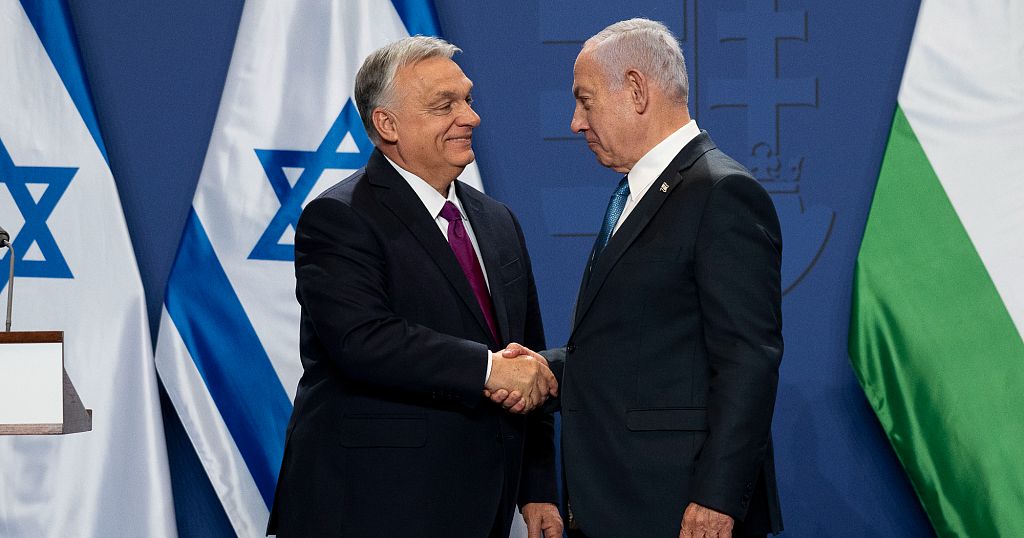
Hungary’s Prime Minister Viktor Orbán announced Thursday that his country will withdraw from the International Criminal Court, just as Israeli Prime Minister Benjamin Netanyahu arrived to red carpet treatment in the country’s capital despite an ICC warrant for his arrest.
Netanyahu’s visit to Hungary, which is scheduled to last until Sunday, was only his second foreign trip since the ICC issued the warrant against him in November.
During a joint news conference after their meeting, at which journalists were not permitted to ask questions, Netanyahu praised Hungary’s decision to withdraw from the ICC, thanking Orbán for taking a “bold and principled decision.”
“The ICC directs its actions against us fighting a just war with just means,” Netanyahu said.
“You are the first … state that walks out of this corruption and this rottenness, and I think it’ll be deeply appreciated, not only in Israel but in many, many countries around the world.”
The ICC, based in The Hague, Netherlands, said when issuing its warrant there was reason to believe Netanyahu and former Israeli Defence Minister Yoav Gallant had committed crimes against humanity in connection with the war in Gaza, which Israel launched after Hamas attacks on October 7, 2023.
Currently, all countries in the 27-member European Union, including Hungary, are signatories of the ICC, but the court relies on member countries to enforce its rulings.
Hungary joined the court in 2001 during Orbán’s first term as prime minister.
Defending his decision to pull Hungary out, Orbán said he believes the ICC “is no longer an impartial court, not a court of law, but a political court. And this was most clearly shown by the decisions regarding Israel”.
The Hungarian leader, regarded by critics as the EU’s most intransigent spoiler in the bloc’s decision-making, is seen as using some of the tactics that Netanyahu has been accused of employing in Israel: subjugation of the judiciary, antagonism toward the EU and cracking down on civil society and human rights groups.
The Israeli leader’s visit to Hungary was his second opportunity to travel abroad following the issuing of the warrant after he met with U.S. President Donald Trump in Washington in February.
It was also a chance to project an image of statesmanship while he faces mounting discontent at home.
Netanyahu has faced mass protests by Israelis who fear his decision to resume the war in Gaza endangers the lives of the remaining hostages held by Hamas.
-

 Conflict Zones2 days ago
Conflict Zones2 days agoUS attacks kill 4 in Yemen as second aircraft carrier sent to Middle East | Military News
-

 Lifestyle2 days ago
Lifestyle2 days agoCooking with kids teaches healthy eating and more
-

 Conflict Zones2 days ago
Conflict Zones2 days agoRussia-Ukraine war: List of key events, day 1,133 | Russia-Ukraine war News
-

 Education1 day ago
Education1 day agoNashville school shooter sought fame in 2023 attack that left 6 dead, report finds
-

 Europe1 day ago
Europe1 day agoLive updates: Trump announces sweeping new tariffs on imports on ‘Liberation Day’
-
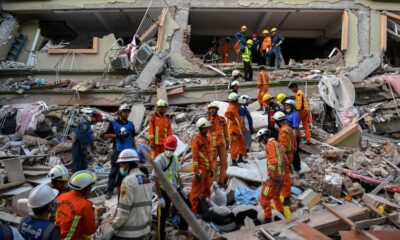
 Asia1 day ago
Asia1 day agoMyanmar’s military government announces temporary ceasefire to aid quake efforts
-

 Sports1 day ago
Sports1 day agoDaria Kasatkina: Russian-born tennis player ‘didn’t have much choice’ over switching allegiances to Australia
-

 Education1 day ago
Education1 day agoA trans teacher in Texas resigns after being targeted by conservatives online




